Pope Francis, on Saturday at the St Peter’s Basilica, swore-in the Catholic Bishop of Ekwulobia, Peter Okpaleke as Cardinal Priest, making him one of the 20 Cardinals ordained by the Papacy this year and the fifth Nigerian to become a cardinal.
In this Pope’s latest selection, all parts of the globe were represented, including new cardinals from Brazil, Nigeria, Singapore, East Timor, and others.
Join our WhatsApp ChannelSources from the Vatican believe that this spread is in line with Pope Francis’ determination to make the Church more inclusive, transparent and responsive to the needs of the poor and marginalized segments of the Church.
Cardinal is the last and highest ordination a Catholic priest attains before becoming a pope. The selection is based on pastoral works of the clergy and their progressive views. With his installation, Cardinal Okpaleke has joined the ranks of Catholic clergies that may someday become pope or be among those that will choose who becomes pope. Other Nigerians who have attained this rank include Francis Arinze, John Onaiyekan, Anthony Okogie and Dominic Ekandem of blessed memory.
With the recent event, Pope Francis has chosen about two-thirds of the cardinals eligible to elect his successor if per chance he dies or takes a cue from his predecessor, Benedict XVI, by resigning. The age long tradition is that, when this happens a conclave of all cardinals who are under age 80 would be called to pick a successor. Before the emergence of Cardinal Okpaleke, only Cardinal Onaiyekan, 78, by age was qualified to attend the conclave as Cardinal Arinze 90, and Okogie 86 are already above the stipulated age limit. Incidentally, by 2025 when Onaiyekan must have clocked 80, only Peter Okpaleke will represent Nigeria if the conclave is called, except in the event that other Nigerian clergies are installed before then.
READ ALSO: Ozigbo To Chair Grand Reception For Cardinal Okpaleke At Home Ekwulobia Diocese
Born 59 years ago on March 1, 1963 in Amesi community in Aguata Local Government Area, Anambra State, Peter Cardinal Ebere Okpaleke was ordained a priest in the Catholic Diocese of Awka on August 22, 1992. From serving as an assistant secretary to the Bishop, the priest occupied many pastoral and administrative positions, including Diocesan financial administrator and Vicar before becoming a Bishop in 2012. Regrettably, not only did his ordination and posting by Pope Benedict XVI as Bishop of Ahiara Diocese raise dust among priests and the congregation from the province, his consecration could not also hold in the Diocese, but, shifted to the Major Seminary of Ulakwo in the Owerri Archdiocese.
Not pacified, those that objected to his posting also prevented him, after his consecration, from entering the Cathedral to assume leadership of the Diocese. Bishop Okpaleke, an Igbo priest from Anambra, posted to Ahiara Diocese another Igbo community in Imo State, was rejected because he was not an indigene of Ahiara, neither was he incardinated in the Diocese.
That’s parochialism taken too far!
Worthy of note is that no law prescribes that priests must serve only in their province, otherwise, sending out clergy men on missionary assignments wouldn’t be necessary. Bishop Anthony Okonkwo Gbuji, the Emeritus bishop of Enugu Diocese is from Delta State, the Bishop of Benin Archdiocese, Augustine Obiora Akubueze is from Anambra State, to name a few. In horning home their rejection, some of the priests went as far as buying a coffin, and announcing the death and burial of Bishop Okpaleke.
READ ALSO: Video: Nigerian Contingent In Rome Glamours Cardinal Peter Okpaleke’s Installation
Rochas Okorocha, then governor of Imo State; Archbioshop Valentine Obinna of Owerri Diocese; Cardinal Onaiyekan, and others were among those that mediated in the matter without success. Cardinal Turkson was sent from the Vatican to speak with the dissenting priests, but like the others before him, he too was rebuffed. The priests were then summoned to the Vatican by the Pope, but, they remained adamant.
Disobedience to the Holy See is taken seriously, hence, they were ordered to write a letter of apology pledging obedience to the authority of the Church.
Although the clergies obeyed the order by Pope Francis 1, for the diocesan priests and deacons to personally within 30 days transmit a letter of obedience to the Vatican and accept the Bishop appointed for their diocese or be suspended a divinis, they continued to protest what they saw as marginalization of the indigenous priests. Such order if disobeyed would have forbidden a priest or deacon from occupying any post or administering the sacraments, except for a priest hearing the confession of a person in danger of death.
The level of resistance by majority of the diocesans was not only shocking to both Catholics and non- Catholic faithful from outside the Ahiara Diocese, it has also, introduced a precedence that can be injurious to the gospel of the Church that preaches universality. It is more benumbing that the protests were led by majority of the priests in the diocese, including those in the Diaspora. A source revealed that on the matter of who becomes Bishop, Ahiara priests are at each other’s throat.
It is the opinion of this newspaper that the proclivities for power should not be extended to the Church. A Bishop ought to be one who is willing to sacrifice his ambition and life, if occasion demands, for his followers. Such a role should therefore not be open for contest, but, reserved for someone found fit for the office.
Again, considering how sensitive the office is, by expressing interest in the office, they demonstrate that none of them is fit to be Bishop. Indeed, they are yet to have a substantive Bishop 10 years after the crisis erupted.
Until one imagined the pains of a captain without a ship, or someone in an abusive relationship, we may not properly estimate how traumatizing the situation was for Okpaleke until his resignation on February 19, 2018 – six years after.
No doubt, he must have been disappointed with the attitude of his Ahiara brethren, but, what’s interesting about the man of God, is that, despite the protests, petitions, and the media razzmatazz, he remained focused and weathered the storm with joy.
We see his travail as a practical demonstration of the saying that every disappointment is a blessing in disguise. Just two years after his resignation, Pope Francis on March 05, 2020, appointed him the Bishop of the Diocese of Ekwulobia, a newly created diocese from Awka Diocese in Anambra State. And two years later, as a Cardinal Priest. His predicament at Ahiara diocese could have motivated interests to his pastoral works and views which were prerequisites to becoming a Catholic Cardinal.
Lessons can be drawn from Cardinal Okpaleke’s experience, especially for those facing disappointment and rejection. It’s our view that many negative events that could have been averted, have led to dangerous consequences because of poor handling.
In any case, rejection of priests, prophets, bishops is a fact of history. But it’s also a baptism that often conditions the true disciple. And Popes have never taken such rejection of their appointees lightly. Cardinal Olubunmi Okojie was vehemently rejected by the faithful in Oyo Diocese, prompting his transfer to Lagos, at the death of the archbishop. The sort of insults heaped on Bishop Hassan Kukah in Sokoto has after all made him more respected.
When people reject priests for no fault of theirs, it is clear their reward will only be greater. The humiliation of Bishop Okpaleke may have prepared him for a princely office in his future career, as a priest.
Dr. Marcel Mbamalu is a communication scholar, journalist and entrepreneur. He holds a Ph.D in Mass Communication from the University of Nigeria, Nsukka and is the Chief Executive Officer Newstide Publications, the publishers of Prime Business Africa.
A seasoned journalist, he horned his journalism skills at The Guardian Newspaper, rising to the position of News Editor at the flagship of the Nigerian press. He has garnered multidisciplinary experience in marketing communication, public relations and media research, helping clients to deliver bespoke campaigns within Nigeria and across Africa.
He has built an expansive network in the media and has served as a media trainer for World Health Organisation (WHO) at various times in Northeast Nigeria. He has attended numerous media trainings, including the Bloomberg Financial Journalism Training and Reuters/AfDB training on Effective Coverage of Infrastructural Development of Africa.
A versatile media expert, he won the Jefferson Fellowship in 2023 as the sole Africa representative on the program. Dr Mbamalu was part of a global media team that covered the 2020 United State’s Presidential election. As Africa's sole representative in the 2023 Jefferson Fellowships, Dr Mbamalu was selected to tour the United States and Asia (Japan and Hong Kong) as part of a 12-man global team of journalists on a travel grant to report on inclusion, income gaps and migration issues between the US and Asia.

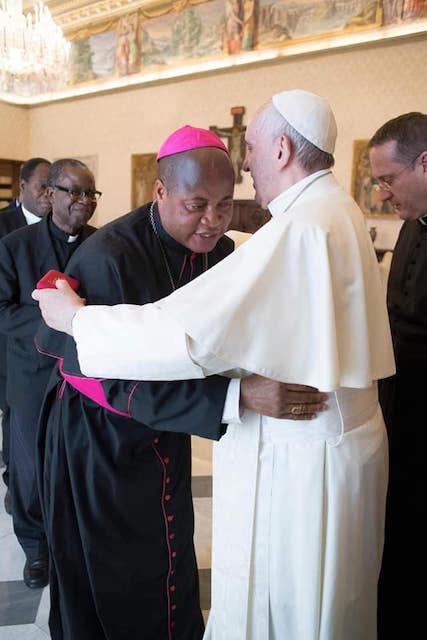





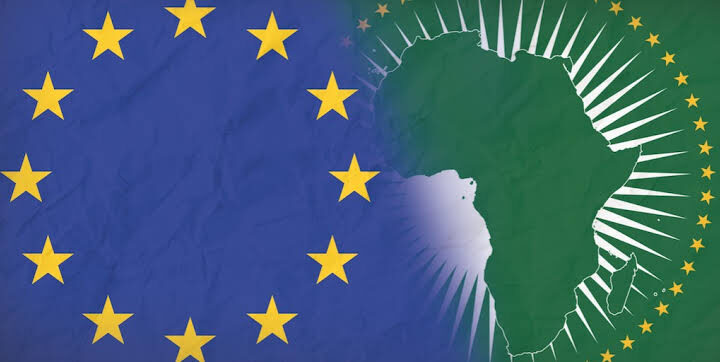








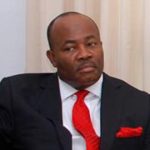
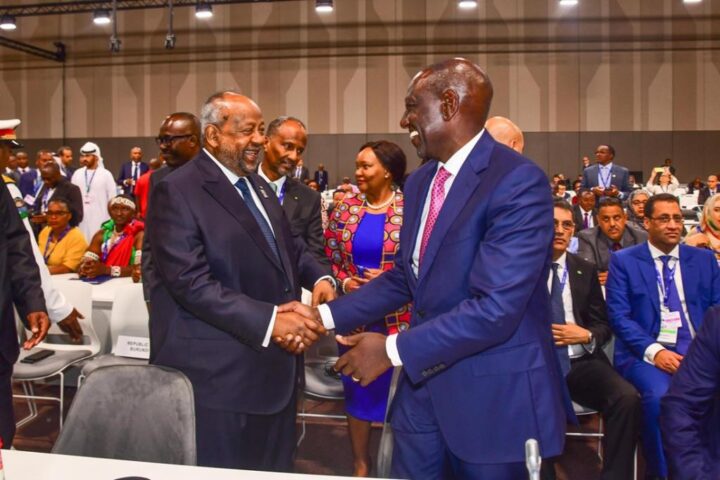
![Gender Activism An Economic Necessity In Africa [PBA Editorial]](https://www.primebusiness.africa/wp-content/uploads/2023/11/vaw-720x480.png)
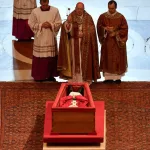
Follow Us